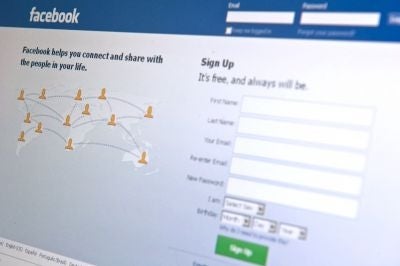Your support helps us to tell the story
From reproductive rights to climate change to Big Tech, The Independent is on the ground when the story is developing. Whether it's investigating the financials of Elon Musk's pro-Trump PAC or producing our latest documentary, 'The A Word', which shines a light on the American women fighting for reproductive rights, we know how important it is to parse out the facts from the messaging.
At such a critical moment in US history, we need reporters on the ground. Your donation allows us to keep sending journalists to speak to both sides of the story.
The Independent is trusted by Americans across the entire political spectrum. And unlike many other quality news outlets, we choose not to lock Americans out of our reporting and analysis with paywalls. We believe quality journalism should be available to everyone, paid for by those who can afford it.
Your support makes all the difference.A German firm is poised to launch software allowing users to have photos uploaded to websites such as Facebook, MySpace and Flickr erased automatically after a certain time, its head said Wednesday.
The software should prevent the increasingly frequent occurrence of someone being refused a job or running into other embarrassing difficulties after posting a photo that maybe should have been kept private.
Before the user posts the photo, he or she drags it into the programme which assigns it an electronic key that is valid for a limited time period, said Michael Backes, founder of X-Pire.
If someone wishes to view that photo later, the server checks whether the photo has "expired" and blocks it from being displayed if its time is up.
Internet surfers already have the power to delete photos from social networking websites like Facebook, but "experience shows that they don't get round to it," Backes said.
"Most Facebook users, for example, are passive users. They go on, they put on a lot of private information and almost never come back on or they forget their password," he said.
"The software is not designed for people who understand how to protect their data but rather for the huge mass of people who want to solve the problem at its core and not to have to think about it any more," added Backes.
The software will be available "in the next few days" and will cost two euros (2.61 dollars) per month, he added.
However, it will not protect cautious users against third parties downloading their pictures and saving them.
"When people put photos on line, it's so they can be seen... our software is not a panacea, not absolute protection," he said.

Join our commenting forum
Join thought-provoking conversations, follow other Independent readers and see their replies
Comments